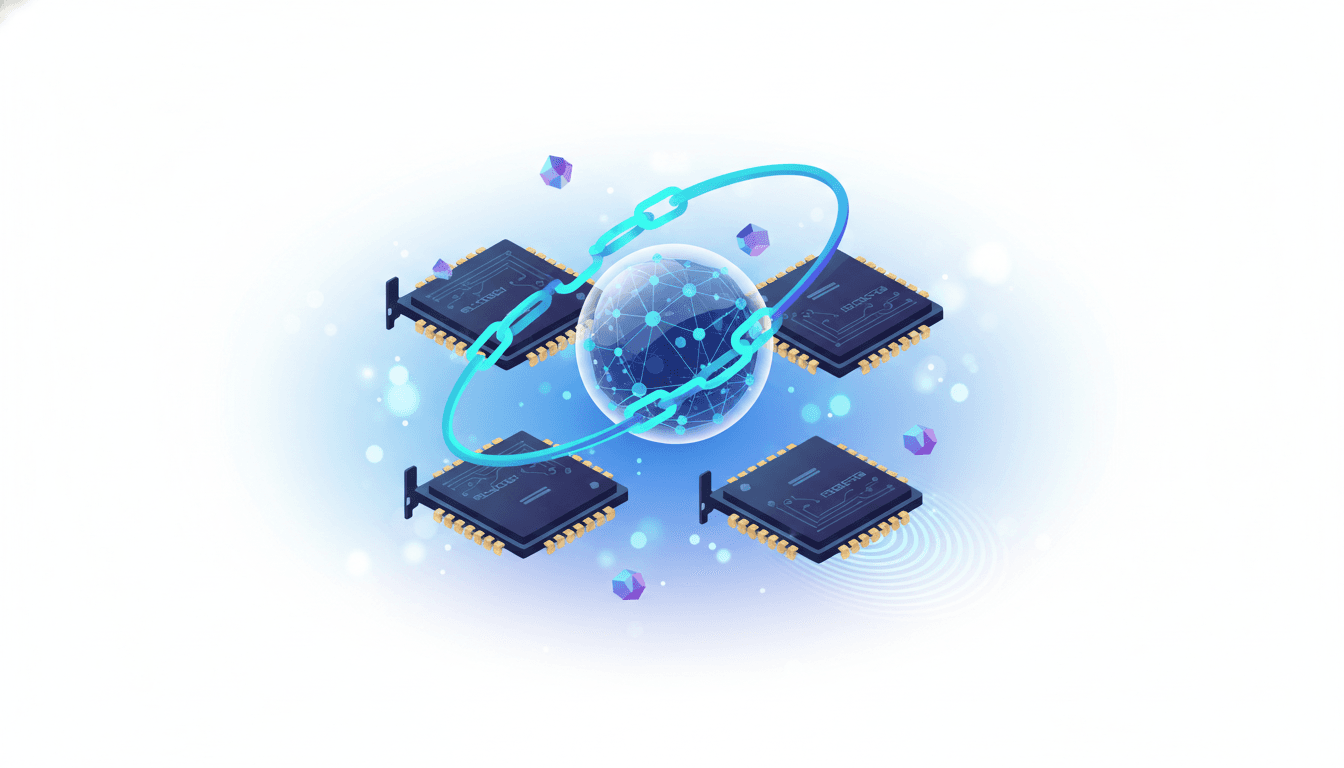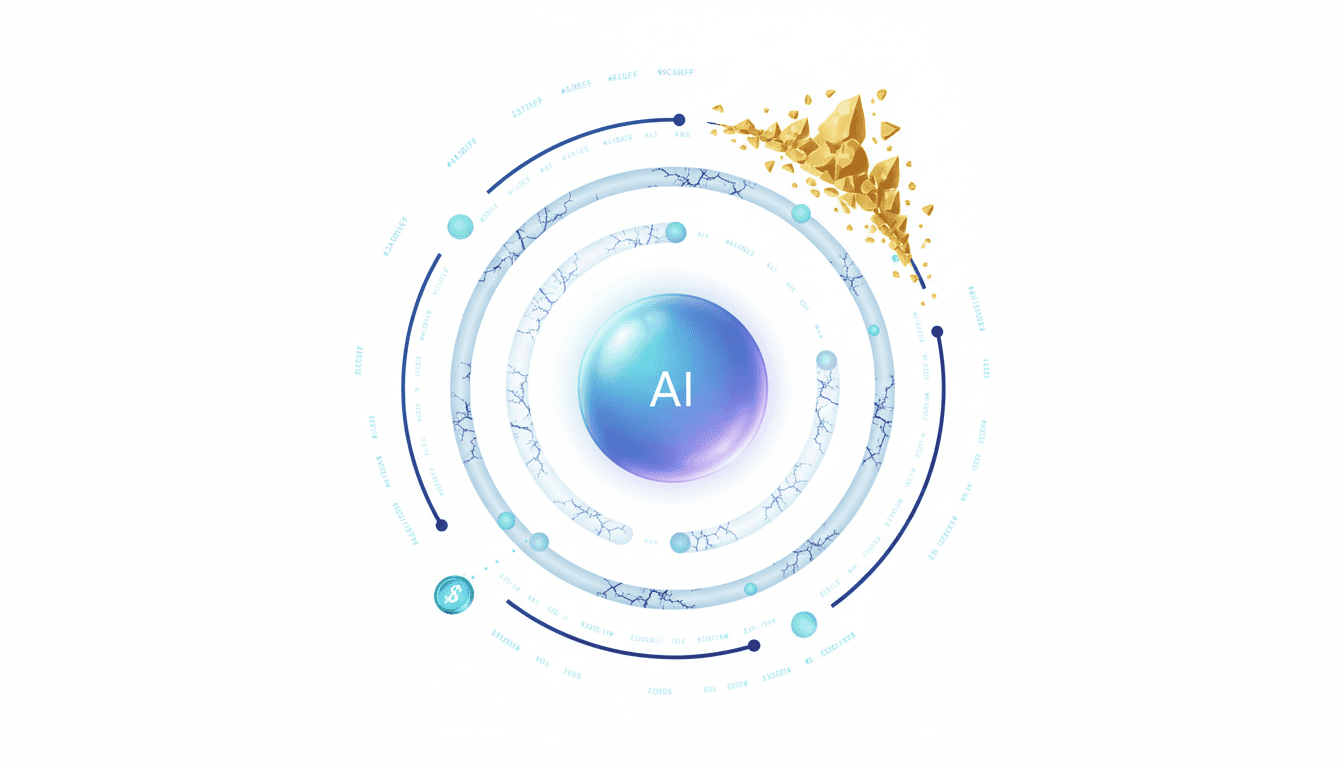OpenAI Oracle Deal: $300B Stargate AI Infrastructure Push

⚡ Quick Take
OpenAI and Oracle's reported $300 billion cloud deal isn't just another big transaction—it's a bold wager on bridging AI with the physical world. As a key piece of OpenAI’s "Stargate" supercomputer push, this partnership underscores a harsh truth: the sprint toward AGI has turned into a fierce scramble for gigawatts of power, prime real estate, and deep pockets, where the real limits on AI models come down to plugging into the grid, not tweaking code.
Summary
From what I've followed in these reports, OpenAI has locked in a multi-year, multi-billion-dollar pact with Oracle for huge computing resources. It's being cast in two lights: one, that eye-catching $300 billion spend over five years, and two, a push to build out 4.5 gigawatts of data center muscle, all earmarked just for OpenAI.
What happened
Tucked into the grand "Stargate" AI infrastructure vision, OpenAI is spreading its bets beyond its main squeeze, Microsoft Azure. Oracle steps up here as a vital backup, handling a big chunk of the raw power buildout needed to train and roll out tomorrow's cutting-edge models.
Why it matters now
Have you wondered how the AI world is evolving under the hood? This deal points to a fundamental pivot in the sector. Building frontier models isn't solely about lab smarts anymore—it's about nailing down enduring, multi-gigawatt supply lines for compute. That reframes the whole race as equal parts energy hunts and data center builds as it is coding wizardry, upending the risks and funding needs for top AI outfits.
Who is most affected
OpenAI gains a sturdy backup for its model pipeline ahead. Oracle scores huge props for its AI cloud ambitions, evolving from old-school database roots into an essential powerhouse for smarts. Meanwhile, Microsoft Azure confronts a tactical hit as its star AI ally works to loosen that tight infrastructure grip.
The under-reported angle
That $300 billion number grabs headlines, sure, but it's more a pledge than instant cash. Digging deeper - and this is where it gets intriguing - the deal's nuts and bolts probably lean on a "take-or-pay" setup, booking as Remaining Performance Obligation (RPO) for Oracle. The money flows only if Oracle clears the messy path of sourcing power, getting permits, and constructing facilities to hit 4.5 GW, a grind full of pitfalls that likely won't touch the books before 2027, if then.
🧠 Deep Dive
Ever felt like AI's glamour is bumping up against gritty real-world walls? The OpenAI-Oracle tie-up feels like that pivotal shift, pulling AI squarely into heavy industry's turf. Official word spotlights the 4.5 GW target for Stargate, yet whispers of financials hint at a whopping $300 billion pledge. This split view captures the deal's heart: it's both a booster for OpenAI's AI path and a hefty upfront financial play. For OpenAI, it's essential hedging against over-relying on Azure, grabbing the brute compute force to leap past GPT-5. Oracle, on the flip side, is remaking itself into a tailored service for the AI boom.
Here's the thing, though—turning that blockbuster dollar amount into steady revenue and earnings per share for Oracle? That's where it thickens up. As some wary analysts point out, with a 2027 kickoff, we're talking distant horizons. The contract sum will probably land first as RPO on the books—a future revenue IOU. Shifting it to actual earnings, per rules like ASC 606, hinges on Oracle delivering real, working capacity. Suddenly, this isn't a straightforward cloud deal; it's a high-wire act in building and supply chains, with Oracle's numbers riding on how well they juggle those projects.
And the real choke point? Not chips or funds, but the stubborn facts of physics and red tape. Picture 4.5 GW—that's the juice for millions of households. Locking it down means threading through Power Purchase Agreements (PPAs), grid hookups from utilities, and zoning battles for data centers, every step a potential roadblock. Rivals are smart to poke at the practicality and schedule, judging the win less on Oracle's software chops and more on tackling those analog headaches of power setups. It's a reminder that innovation doesn't happen in a vacuum.
This setup ripples through the field. Oracle isn't gunning to outdo AWS or Azure on bells and whistles. No, it's carving out as a no-frills, high-octane provider for one giant client—think specialized setups like CoreWeave, but scaled to the giants. That could split the market: everyday clouds for the crowd (AWS, Azure, GCP) versus bespoke, gigawatt behemoths for AI titans (Oracle for OpenAI). Watching this unfold will show us if AI's compute future stays bundled and sleek or breaks into raw, plug-and-play utilities.
📊 Stakeholders & Impact
Stakeholder / Aspect | Impact | Insight |
|---|---|---|
OpenAI / Frontier Labs | Very High | Locks in an Azure-free route for upcoming models, yet piles on huge future financial pledges and risks from partners. Now it's about wrangling a spread-out, multi-cloud setup—plenty to juggle, really. |
Oracle | Transformational | Backs up its OCI AI play with a monster revenue pipeline. That said, it shoulders massive risks in powering through construction, power deals, and chain logistics. |
Microsoft Azure | High | Deals with fresh rivalry for its key AI client. The core alliance holds, but OpenAI's branching out hints at a fairer balance, dialing back Microsoft's edge over time. |
NVIDIA & Chip Supply Chain | High | Fuels demand for next-gen GPUs like H200 and GB200 for years, though funneling it to one buyer shifts how allocations and prices play out. |
Energy & Utility Sector | Significant | This 4.5 GW jolt speeds up AI's clash with green energy aims, straining grids and pushing utilities to rush new builds and lines. It's a wake-up call for the sector's pace. |
✍️ About the analysis
I've pieced this together as an independent i10x take, drawing from public announcements, finance news, and takes from AI infrastructure pros. It blends tech, money, and strategy angles to cut through the noise—for execs, investors, or anyone building in this space, offering a grounded lens on what's shaking up AI foundations.
🔭 i10x Perspective
From what I've seen in the trenches of this industry, this deal draws a line: AI's done pretending it's all software magic. Now it's bound by heat, energy laws, and the slow grind of funding big projects. The edge that counts isn't some fancy language model alone—it's corralling and bankrolling multi-gigawatt power setups over ten-year hauls.
OpenAI's smart to ease off sole reliance on one cloud, but in doing so, it's betting big on Oracle pulling off feats in bricks-and-mortar reality. That leaves us pondering, over the next half-decade: will the breakthroughs from models trained on this colossal setup pay back the sky-high tab? If not, we might end up with history's priciest, most sophisticated empty lots—a sobering thought for where all this heads.
Related News

OpenAI Nvidia GPU Deal: Strategic Implications
Explore the rumored OpenAI-Nvidia multi-billion GPU procurement deal, focusing on Blackwell chips and CUDA lock-in. Analyze risks, stakeholder impacts, and why it shapes the AI race. Discover expert insights on compute dominance.

Perplexity AI $10 to $1M Plan: Hidden Risks
Explore Perplexity AI's viral strategy to turn $10 into $1 million and uncover the critical gaps in AI's financial advice. Learn why LLMs fall short in YMYL domains like finance, ignoring risks and probabilities. Discover the implications for investors and AI developers.

OpenAI Accuses xAI of Spoliation in Lawsuit: Key Implications
OpenAI's motion against xAI for evidence destruction highlights critical data governance issues in AI. Explore the legal risks, sanctions, and lessons for startups on litigation readiness and record-keeping.